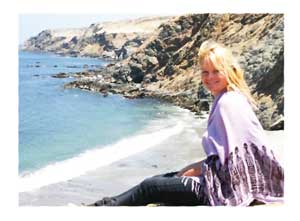
Local environmentalist attends Change of Course Conference

Dr Justine Braby
The idea for the Conference, which took place from 8 to 11 December 2012 in Winterthur, Switzerland began earlier this year as a web based project, run in conjuction with Web for Interdisciplinary Research and Expertise (W.I.R.E) that asked activists to contribute a blog of 500 words on how to bring about an argument change in thinking and action. Justine was the only Namibian selected to represent the country.
The Conference was organised by the Club of Rome, an international think-tank, composed of 1500 national members and over 30 national associations, with a mission of analysing the challenges facing humankind in a systematic, holistic and long term manner. The young leaders held discussions around finding solutions to the world’s challenges towards a more equitable and sustainable world.
Discussions at the Conference covered the challenges for the future and the participants found common ground to overcome obstacles to make changes and look for mechanisms to use. In the final sessions, the participants drew up a list of concrete measures and strategies to put change into practice. According to Justine, major topics discussed at the conference included economic systems and changing value systems towards a more holistic measure of success with integration of nature based solutions.
“Global challenges as a result of our current value system were mainly climate change and poverty. On day 2 of the conference we were put into groups where we discussed what the global challenges are and came up with a “toolkit of change”, which in our group, was basically a communications strategy on how we, as individuals of our group, can go home and use our channels and networks to communicate the Club of Rome information to incite action,” said Justine.
Apart from the various discussions, the most significant element to come out of the conference is that participants wanted to continue to collaborate to take concrete steps to change the world and asked the Club of Rome to assist with this. In addition, the participants came up with a vision of how to work in the future; to inspire people to change their values, build networks to connect with them and put a premium on education.
Justine elaborated that she and other participants learned a new set of skills and knowledge to bring to their respective countries and push for more successful societies within their own capacities in their communities. “It was very much a sharing experience where a group of people sat together to discuss how they would go about changing the world for the better, so I got insights into new and innovative ways of thinking, human philosophies, effective communication, mutual understanding, economics and value systems and much more,” she told the Economist.
The Change of Course Conference is part of a broader campaign, 2052: the world in 40 years, to stimulate ideas on how to shape a more sustainable world. The conference was born out of the idea that the captain of the Titanic ship which sunk in 1912 had failed to see the signs or listen to advice to change course, just before the ship struck an iceberg.












































